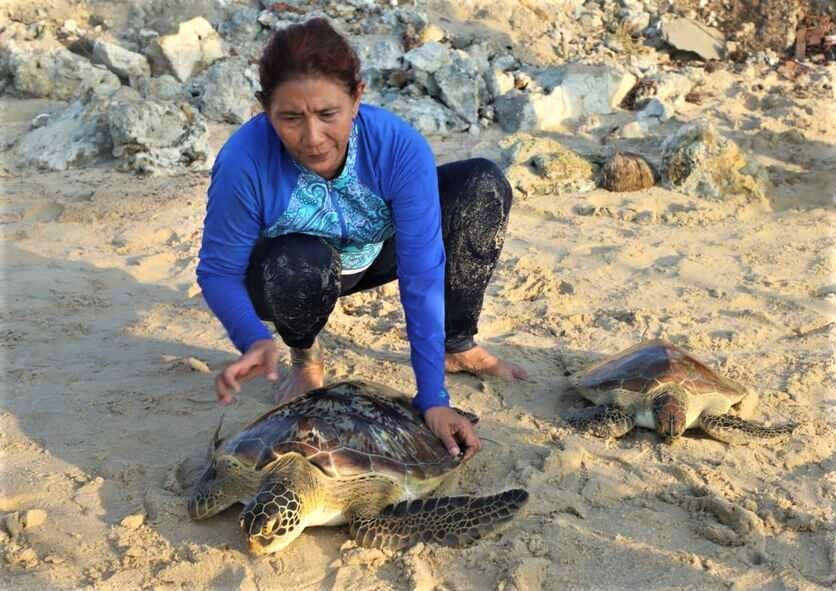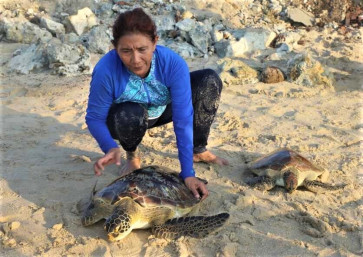Popular Reads
Top Results
Can't find what you're looking for?
View all search resultsPopular Reads
Top Results
Can't find what you're looking for?
View all search resultsCelebrate communities that are protecting turtles
In four villages on Buru Island in Maluku, village regulations were enacted that now make it illegal to poach turtles and their eggs.
Change text size
Gift Premium Articles
to Anyone
S
ix out of seven sea turtles are at risk of extinction and Indonesia is home to all six. The leatherback sea turtle (Dermochelys coriacea), the oldest and largest of them, remains critically endangered with as few as 2,300 nesting females remaining in the Indo-Pacific region.
As a highly migratory species, the same leatherback turtles that come to nest on Indonesia’s beaches can be found months later in foraging grounds as far as the United States. Their journey, however, is fraught with danger.
To survive, they must avoid being caught — unintentionally in commercial fishing nets, longlines, abandoned, lost, or discarded fishing gear (also called ghost gear), and intentionally by hunters for their meat and eggs.
Indonesia hosts the latest nesting colonies remaining in the Indo-Pacific Ocean, but the population has fallen by more than 80 percent in just the last four decades. To bring them back from the brink, we must protect these turtles along their journey and maintain strong cross-boundary collaboration between governments, scientists, and the public.
Among the most important actors are in fact people whom we hardly get to hear from in the public domain – these are the coastal communities who live right next to where our leatherbacks feed, nest and are born.
In the Buru and Kei Islands of Maluku, the tradition of harvesting and consuming leatherback turtle eggs or meat for subsistence has been practiced for decades. Local population growth and demand for turtle meat in neighboring islands instigated more hunts than were necessary. The traditional hunt soon became unsustainable. An estimated 60 percent of the leatherback nests laid on Buru beaches would be harvested by poachers, and around three to five nesting females would be taken for local consumption each year.
As Indonesia’s second largest nesting ground for the leatherback turtles, protecting nesting leatherbacks on these islands holds a global significance for the species – a sentiment shared by the Buru Island’s village elders who would recall nights when as many as 30 leatherbacks would emerge to nest.



















